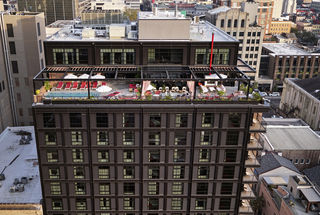Like Home but Better: What Today’s Luxury Travelers are Looking for

Ultra-luxury travel is no longer a hobby exclusive to the baby boomer generation of retirees. Today’s affluent shoppers and hotel guests look different than 10-20 years ago. With the rise in social media and influencer culture, travel is now something younger generations are taking advantage of. What was once dominated by the 55+ community is now an audience spanning generations, values, incomes, and expectations of the luxury market.
When traveling today, these guests are looking for a vacation offering nearly all the luxuries their home has, but even better. To keep guests happy and create customer loyalty, privacy, comfortability, culture, connection, convenience, and sustainability must be seamlessly woven into an authentic and luxurious guest experience.
From Guests to Friends: Forging Connection in Hospitality
There is no better feeling than walking into a hotel property and being welcomed with a warm and appreciative greeting. Along with the hotel’s surroundings, this guest welcome sets the stage for a week or weekend of great memories. Whether it is their first or their hundredth time on the property, today’s luxury guests seek a welcoming and seamless check-in experience.
Beyond service, time, and exclusivity, these travelers expect other luxuries. They demand a fluid experience offering greater efficiency, connectivity, privacy, and safety, from private transfers and entrances to VIP parking and fast-tracked access. At home, guests feel secure and sheltered. When they are on vacation or traveling for business, they should feel the same about their hotel experience. Lobby design, elevator lobbies, and guest room hallways should reflect privacy and security in a welcoming and connected way.
Today’s Guests are Looking to Experience Local Culture
When looking to experience the world around them, today’s luxury travelers are eager to get off the beaten path and explore their surroundings from a local’s perspective. It's often not indulgence that these journeyers seek but elevated essentialism and a feeling of authenticity. The design of hotels must reflect their local surroundings in a consistently elevated way while remaining true to the locale, connecting decor with the local culture and community.
Regarding hotel team members and their culture, hotel staff should have extensive knowledge of their surroundings and be readily available to recommend local restaurants, theaters, museums, volunteer opportunities, and other cultural spaces for visitors to explore while they are visiting. These travelers seek a sense of integration and desire to be embedded into a place's history and its people when visiting. In a way, they’re looking to transcend the role of tourist, wanting instead to be treated and understood as adventurers and global citizens.
When it Comes to Luxury, Comfortability Outweighs Cost
It is important to understand that the most luxurious designs don’t need to be the most expensive. Today’s travelers live much more comfortably than the guests of the past. From elevated casual wear to soft and plush furnishings, wealthy individuals often prioritize comfort over the most expensive price tags. When designing for the luxury traveler of today, it is important to prioritize elevated comfort because great design doesn’t equate to the most expensive design choices.
Convenience is Key, Day and Night
From dining to the internet to on-property technology, convenience is prioritized for the luxury traveler of today. As many individuals embrace remote work, these properties need to reflect the needs of digital nomads. Internet has to be strong within the room, in additional hotel spaces such as by the pool, in lounges, and within every on-property amenity. Technology should be intuitive as no resident is willing to put up with temperamental temperature controls, hard-to-navigate televisions, or impossible-to-find charging outlets. As designers, we must try to make it easy. These affluent tourists expect high-end and intuitive technology to make their stay seamless.
Beyond convenience with the internet and technology, today’s five-star trekkers are looking for options when it comes to convenient food choices. The standard 24/7 room service no longer cuts it; there needs to be various easy-to-access options for dining, and it's up to hotel properties to invest in options from ghost kitchens to local partnerships to provide guests with choices when it comes to speedy food and beverage options.
Prioritized Sustainability Efforts
The new luxury traveler will likely be a conscious consumer who expects sustainability and social responsibility as prerequisites for their travel destinations. While sustainability should already be second nature in hotel design, it has yet to be. Younger travelers of today prioritize environmental, social, and governance (ESG), and hotels must reflect this pillar. The new generation of travelers puts their money where their mouth is – and wants their hotels to uphold their values when it comes to sustainability.
Today’s luxury travelers are looking for hotel experiences that provide convenience, connection, privacy, culture, and sustainability elements. Beyond design, memorable experiences will bring guests back to the property for years to come [read more about measuring memory, emotion, and awe in the built environment here]. The greatest design will never be valued as luxurious if the level of service is not exceptional because today’s most passionate and loyal customers are born from experiences that are better than home.